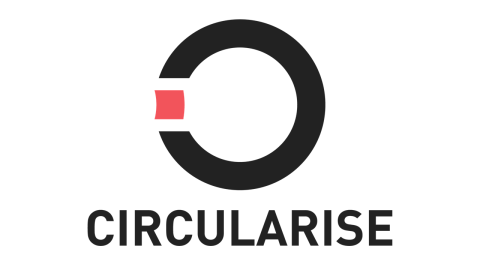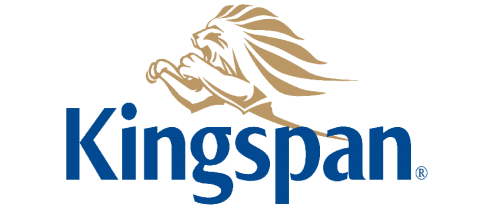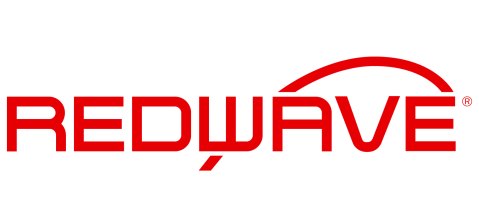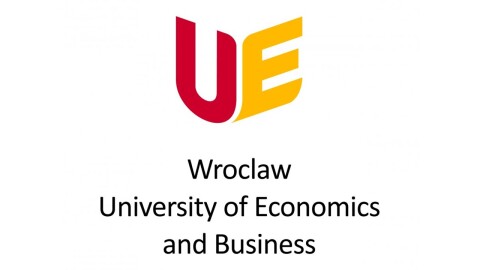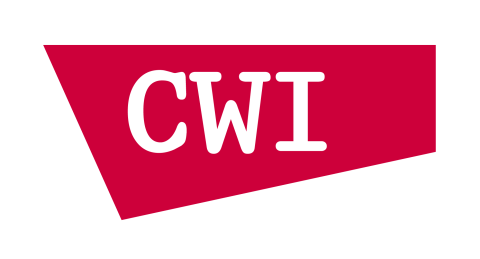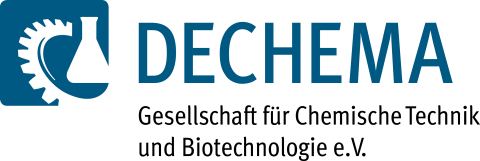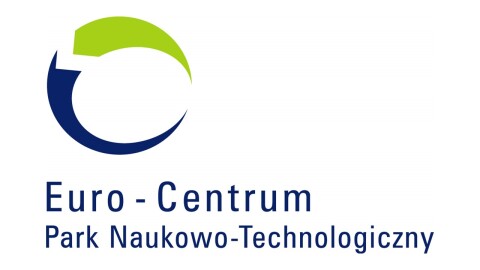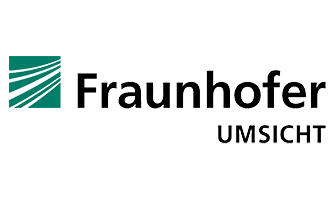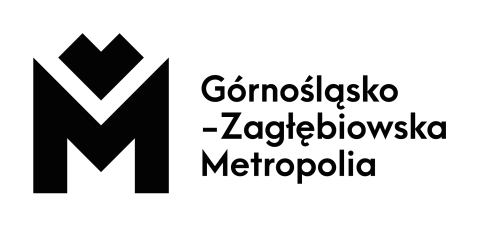Companies
With 2020 sales of EUR 10.7 billion, Covestro is among the world’s leading polymer companies. Business activities are focused on the manufacture of high-tech polymer materials and the development of innovative, sustainable solutions for products used in many areas of daily life. In doing so, Covestro is fully committed to the circular economy. The main industries served are the automotive and transportation industries, construction, furniture and wood processing, as well as electrical, electronics, and household appliances industries. Other sectors include sports and leisure, cosmetics, health and the chemical industry itself. At the end of 2020, Covestro has 33 production sites worldwide and employs approximately 16,500 people (calculated as full-time equivalents).
Covestro is the coordinator of CIRCULAR FOAM and responsible for the development and demonstration of chemical recycling technologies.
PTS ALBA, a subsidiary of ALBA Group based in Chorzów, Silesia region, is a leading company in municipal waste collection and disposal. Alongside other ALBA Group companies, they serve approximately 700,000 residents across 14 cities in the region, treating over 310,000 metric tons of municipal waste in 2021. ALBA operates two facilities for municipal waste treatment and one for construction and demolition waste treatment, providing an advantage over potential project partners. Environmental protection is a top priority for ALBA, actively pursuing solutions to reduce waste impact and actively engaging in zero waste initiatives. With a dedicated team of over 600 environmentally conscious professionals, ALBA strives to deliver high-quality services while fostering a cleaner planet. Their well-established position, decades of experience, and extensive collaboration with waste recyclers further solidify their expertise in the municipal waste sector.
In the CIRCULAR FOAM project, ALBA is actively collecting data on waste in the Silesia region and implementing innovative solutions derived from the project's findings.
BioBTX is a company in the northern part of the Netherlands creating sustainable BTX (benzene, toluene and xylenes) from non-food biomass and plastic waste. The lower molecular weight aromatics BTX are vital components for the creation of high-performance materials (a.o. new plastics), thereby contributing to the circular transition. In addition, it decouples the plastic industry from fossil resources. BioBTX has a pilot plant (10 kg/h) available and a proven record in the catalytic pyrolysis of end-of-life plastics (e.g. polyolefins) towards BTX. Expanding the feedstock for catalytic pyrolysis towards polyurethanes will not only result in the formation of BTX but most likely also in high-value amines.
In this project BioBTX main task is the optimisation of the chemical recycling processes in collaboration with the University of Groningen. The catalytic pyrolysis of PU will be demonstrated on bench (100 g unit) and pilot scale (10 kg/h).
Circularise enables item-level transparency and traceability by leveraging blockchain (for increased trust) & zero-knowledge cryptography (to protect confidential data). This data can be used to close loops more efficiently. By redesigning future products and supply chains we can make sure that closing the circular supply chain loops is not only possible but also economically interesting. Circularise thereby tackles the obstacles of a lack of digital infrastructure and standardisation and allows data sharing with a validated proof of its validity without sharing sensitive data. It enables data sharing that fully solves the dilemma between transparency and confidentiality.
In CIRCULAR FOAM Circularise enables the use of private data of companies, their materials, production and further supply chain information without sharing the private data. Circularise therefore provides access to product specific full data of a product, via a question-answer mechanism. This also allows calculations e.g. LCAs and carbon footprint.
Electrolux Italia S.p.A.is a historic European leader in household appliances sector covering products research, design and manufacturing. The Company is part of the Electrolux Group, a global leader in household appliances production with 55000 people in 60 countries, that delivers every year more than 60 million products in >150 different Markets. Food Preservation R&D, the unit involved in the project and located in Susegana (Italy), is responsible to develop and validate technical solutions, methods and devices to ensure food safety and quality. The target is to deliver world-class products to offer consumer relevant and differentiated benefits within the area of taste (freshness), accessibility and sustainability (healthy taste and food waste).
Electrolux is responsible for the testing and evaluation of PU systems for refrigerators and freezers where polyols and isocyanates originate from the established recycling process.
Interzero is one of the market’s leading providers of environmental services for closing product, material or logistics loops. For customers all over Europe, Interzero develops individual and industry-specific models for avoiding wastage and ensuring efficient business practices. Recycling specialist Interzero interprets its vision of “zero waste solutions” to mean solutions that organise raw materials in a closed loop, extend product lifetimes and design processes to be efficient – and always with the aim of using as few resources as possible. The services offered cover the entire value creation process: from take-back systems for packaging recycling and modern logistics solutions for multi-use transit equipment through to the development of made-to-measure waste management solutions or the supply of recycled materials such as reprocessed plastic. The portfolio even includes the reconditioning of used IT and communications equipment for reuse.
In CIRCULAR FOAM Interzero defines the processes and requirements for collection and dismantling of both appliances and panels containing PUR foams.
IZNAB Sp. z o.o. provides services in the fields of Engineering and Consultancy. Headquartered in Warsaw, Poland, the company regularly deals with projects regarding energy-efficient buildings, smart & green transport, clean & green Energy or nano-biotechnology. IZNAB’s objective is to provide innovative solutions in a highly competitive market. Thanks to its highly specialized and experienced engineers, IZNAB can offer various adapted services of excellent quality. These include for example the expertise in design, optimization and integration of new compatible eco-innovative cost- and energy-efficient manufacturing technologies and processes. By applying the latest tools for Life-Cycle Analysis (LCA/LCCA) they manage to understand the behaviour of innovative materials/complex structures, characterize them and apply simulation software to design modern systems of industrial processes and equipment.
In CIRCULAR FOAM IZNAB is responsible for the dissemination and exploitation of the project's results and findings.
Kingspan Group plc is a global leader in high performance insulation and building envelope solutions. The company operates in over 70 countries with 5 divisions, 84% of which is made up by Insulated Panels and Insulations. Kingspan is committed to innovation so we can make building better – it is something we demonstrate daily in the work we produce across our business. The building industry has an important role to play in combating climate change and we believe we have to challenge building industry traditions through innovating in advanced materials and digital technologies. Kingspan’s insulation products and systems are strongly focused on superior thermal efficiency and therefore enable higher lifetime energy and carbon savings in buildings. Kingspan has also committed to Planet Passionate, a 10-year groupwide sustainability programme aligned with the UN SDGs and the IPCC 1.5 degree climate change scenario. Kingspan Group plc is focused on continuously improving the environmental performance of insulated panels and is actively involved in a series of pilots and activities around enhancing the circularity of rigid foam insulation and insulated metal panels.
In CIRCULAR FOAM, Kingspan is involved in the design of recyclable panels, lab and pilot scale assessment of circular materials, collection of end-of-life panel & board and capturing customer experience.
REDWAVE - Recycling & Waste Treatment Solutions. Advancement through technical progress! REDWAVE is your reliable partner for profitable solutions in the recycling and waste industry. It supplies groundbreaking and economic sorting plants for recyclables as well as turnkey waste treatment plants. Furthermore, REDWAVE is a leading manufacturer of sensor-based sorting machines with a sturdy industrial design which achieves high performance and quality recovery of materials. REDWAVE does not stop at the sensor level but provides the complete machine taking the responsibility for the sorting result. It also focuses to have its own software and hardware knowledge in house as this gives their clients the required flexibility and allows them to continuously develop their products and react quickly on market and customer needs. REDWAVE operates worldwide and headquartered in Austria. It maintains branch offices in Germany, China, Singapore and the US.
In the project REDWAVE is responsible for the developement and testing of a high-speed sorting prototype for rigid end-of-life PU material. REDWAVE performs sorting trials in real-life environment together with Interseroh to create a high-value secondary raw material stream which is suitable for subsequent chemolysis and/or pyrolysis processes.
Sulzer is a global leader in fluid engineering and chemical processing applications. We specialize in energy-efficient pumping, agitation, mixing, separation, purification, crystallization and polymerization technologies for fluids of all types. Our solutions enable carbon emission reductions, development of polymers from biological sources, recycling of plastic waste and textiles, and efficient power storage. Our customers benefit from our commitment to innovation, performance and quality through our responsive network of 160 world-class manufacturing facilities and service centers across the globe. Sulzer has been headquartered in Winterthur, Switzerland, since 1834. In 2023, our 13’130 employees delivered revenues of CHF 3.3 billion. Our shares are traded on the SIX Swiss Exchange (SIX: SUN).
In CIRCULAR FOAM, Sulzer is responsible for the downstream processing of smart catalytic pyrolysis. Together with other partners, Sulzer will provide conceptual design and scale-up of the purification process. Pilot-scale distillation trials will be demonstrated for the purification of aniline from aniline-rich pyrolysis oil.
Unilin’s division Insulation, with headquarters in Desselgem, started manufacturing roof elements with rigid polyurethane (PU) insulation already in 1973. In 2009 it started production of PIR insulation boards in Desselgem. Today Unilin insulation has manufacturing plants in Belgium, The Netherlands, France, Ireland and UK, and it has become Europe’s second largest producer of insulation boards. Developing a recycling solution for PU-waste is part of Unilin’s strategy, for production, jobsite as well as end of life waste. Because the interests of Unilin as manufacturer of insulation products, and the broader supply chain run parallel, there is a clear added value in sharing the fundamental technological, strategic and systemic research. The capabilities of different manufacturing lines for roof panels and insulation boards will enable Unilin to quickly test production with recycled raw materials on an industrial scale. The relevant product characteristics can be evaluated in our own laboratory. This can reduce development time of products with recycled content.
In CIRCULAR FOAM, Unilin Insulation coordinates the work on redesigning and testing existing products to enhance circularity, e.g. by design for disassembly and validate systemic concepts downstream in the value chain. They also evaluate the recycled raw materials from polyurethane recycling pilots of partners in the project and will demonstrate the production of circular polyurethane insulation boards and/or other applications such as roof panels.
Universities
The Eidgenössische Technische Hochschule Zürich (ETHZ) is one of the two Swiss Federal Institutes of Technology and has three core missions: training, research, and technology transfer. The research of the Laboratory for Energy and Process Systems Engineering (EPSE) at ETHZ led by Professor André Bardow focuses on sustainability in energy and chemical process systems. The group develops methods to advance sustainable energy and chemical process systems from the molecular to the systems scale. Thus, the Bardow Group has significant experience in the techno-economic analysis and life cycle assessment of technologies and value chains for chemical conversion in process engineering. The technological focus currently lies in Power- to-X & sector coupling, sustainable carbon feedstock, and carbon capture, utilization & storage.
In CIRCULAR FOAM, ETHZ is responsible for the conceptual process design and thermo-economic analysis of the chemical recycling and the life cycle assessment of the overall system.
The Amsterdam University of Applied Sciences (AUAS) educates tomorrow’s professionals in a wide array of fields and disciplines of higher education. With a focus on applied sciences, the AUAS enables students, lecturers and researchers to develop cutting-edge and practical knowledge and innovations. The Centres of Expertise for Urban Technology of AUAS works in sustainable, action-oriented research and innovation partnerships. Research is structured around four urban challenges: Circular Transition, Logistics and Mobility, Energy Transition, and Designing Future Cities. EXCEED-PUR research project is linked to AUAS research programs on Circular Transition, Built Environment, and City Logistics. AUAS is member on the Amsterdam Taskforce Communication Alliance for a Circular Region (CACR) that started over 200 circular projects in the Amsterdam region.
AUAS is responsible for the development of a regional eco-system, participatory development of stakeholders in circular business models (Living Lab approach), steering consumer behavior, develop urban waste collection systems with stakeholders and using the physical internet framework for collaboration.
Ruhr-University Bochum (RUB) is one of the ten largest universities in Germany. It is a full university with 20 departments and a strong research orientation. The proposed tasks will be conducted by members of the Centrum für Umweltmanagement, Ressourcen und Energie (CURE) at the Department of Management and Econonomics. CURE has research expertise in quantitative methods from economics such as econometrics and modelling, legal expertise and expertise in qualitative research methods common in the social sciences. In particular, CURE has a group with a strong background and ample experience in participatory research. CURE is also a part of the university-wide Research Department Closed Carbon Cycle Economy (RD CCCE) which is a platform for excellent researchers from all departments for joint research on how the economy can be decarbonized by closing carbon cycles.
In CIRCULAR FOAM, RUB will be involved with the interdisciplinary regional analysis of the Rhenish mining area in Northrhine-Westfalia and the development of a blueprint model for regional transformations towards a circular economy.
The University of Groningen (Dutch: Rijksuniversiteit Groningen, RuG) was founded in 1614 and is ranked as one of the global top 100 universities. The chemical reaction engineering group, headed by Prof. H. J. Heeres of the Department of Chemical Engineering, the partner in this consortium, is embedded in the Faculty of Science and Engineering (FSE). The Heeres group (Prof. Heeres, Prof. Yue, Prof. Deuss) is active in the development of novel catalytic chemistry and reactor concepts for catalytic processes with a strong emphasis on the conversion of (lignocellulosic) biomass to energy, biofuels and biobased (performance) chemicals. The group also performs research in the field of heterogeneous catalysis, with emphasis on the synthesis, characterisation and applications of zeolites, mesoporous materials and mixed oxides. Recently, the group has also expanded activities in the field of technology development for plastic recycling, among other by (catalytic) pyrolysis technology.
In the project the University of Groningen is responsible for the chemical recycling in a micropyrolyser and on bench scale (in collaboration with BioBTX) as well as the screening and selection of catalysts. They will furthermore chemically analyse the products.
With 260 institutes in nine faculties, RWTH Aachen University is one of Europe’s premier educational and research institutions. Two institutes of RWTH are involved in CIRCULAR FOAM: the CAT Catalytic Center and the chair of Fluid Process Engineering (AVT.FVT). CAT Catalytic Center is a collaborative project of RWTH Aachen University and Covestro AG focused on research and development in the field of homogeneous and heterogeneous catalysis for sustainable processes and products in the area of high-tech polymers and corresponding starting materials. The chair of Fluid Process Engineering (AVT.FVT) focuses on research in the field of downstream processes and their integration in upstream chemical conversions.The aim of the chair is to develop efficient methods for the combined experimental and model-based design and optimization of single unit operations up to complete separation sequences.
The RWTH Aachen University focuses on the seperation technologies and process design of the chemical recycling.
TU Dortmund is a leading German Technical University, located in the Ruhr region, one of the industrial centers of Germany. The Department of Biochemical and Chemical Engineering is one of the largest departments of its kind in Europe with more than 1000 students enrolled in the two Bachelor and Master Programs in Biochemical Engineering and in Chemical Engineering. The Process Dynamics and Operations Group was founded in 1990 with the appointment of its present head, Prof. Sebastian Engell. The activities of the group span from process control to applied optimization, e.g. for site-wide coordination, scheduling, and demand side management in industrial plants. The group has been involved in several European projects on innovative processes, energy and resource efficiency, and water management in India, and in several large German projects, most notably the project KEEN – Artificial Intelligence Incubators in the Process Industries where Prof. Engell leads the project area on self-optimizing plants. The Laboratory of Process Automation Systems was founded in 2020 with the appointment of Prof. Sergio Lucia. The group is focused on optimization under uncertainty, model predictive control, and the interactions between machine learning and control with applications to complex process and energy systems.
The TU Dormund is tasked with the process integration and is responsible for the systemic approach in the project.
Wroclaw University of Economics and Business is ranked among the top economic schools of higher education in Poland and is an important center of science and research. The University offers nine degrees/majors and in excess of sixty specializations. Wrocław University of Economics and Business has an extensive experience in both project application and management. In order to support and develop University’s activities in that field in 2016 The Project Management Center (PMC) was established as a university internal unit. Over the last few years the PMC has been engaged in more than ten international projects, including Horizon 2020 program. The team of prof. Maja Kiba-Janiak is interdisciplinary, including persons experienced in statistics, logistics, supply chain management, waste management, change management, logistics processes’ optimization, risk analysis. The team has a wide collaboration with industry (international and national) from the area of waste management, production, logistics services, IT.
WUEB analyses the current state of the configuration of the supply chain and the processes which occur in reverse logistics of PU wastes. Hereby WUEB supports the creation of a new model for a closed loop supply chain (reverse – circular value chain).
Institutes
Stichting Nederlandse Wetenschappelijk Onderzoek Instituten, with its institute Centrum Wiskunde & Informatica (CWI), founded in 1946, is an internationally well-renowned academic research institute. Its mission is twofold: (1) to perform cutting-edge fundamental scientific research, and (2) to transfer the knowledge to the broader society. One of CWI’s key research themes is “logistics”, where we develop quantitative models to optimise the performance and efficiency of logistic processes as well as stoachastic processes in the presence of uncertainty in many aspects of the supply chain.
CWI is involved in the development of mathematic models for the inclusion of resilience and with respect to disruptions on the supply chain, and mitigation of risks. In close interaction with HVA, CWI develops reverse supply chains for the new circular economy.
DECHEMA (Society for Chemical Engineering and Biotechnology e.V.) is an interdisciplinary scientific society with more than 5,500 personal and institutional members (including about 500 SMEs), whose activities cover wide areas relevant to the process industries. DECHEMA is dedicated to the support of R&D progress and implementation in various fields of chemical engineering, including catalysis and reaction engineering. DECHEMA has main contributions on industrial symbiosis, including mapping and assessment of sources and in the project’s dissemination & communication activities.
DECHEMA's tasks in the project are the communication and dissemination of the project results as well as the outreach to decision makers, scientific community and the general public.
The Euro-Centrum Science and Technology Park focuses on the development of energy efficient technologies and respecting energy in buildings. It is a place where business meets science. The Park implements its objectives by offering laboratories and research equipment, training and consulting services and facilitating access to knowledge and the results of the latest research from the energy sector. It also creates favourable conditions for the location of advanced technology companies and encourages effective cooperation between busisnessmen, researchers, students and investors. There is a passive building within the Park with a minimal energy needs for heating and cooling purposes. It was granted by the European Commission with Green Building Award for its environment-friendly performance. There are also the Training Center of Heating Techniques and advanced laboratory facilities which enable an upgrade of professional skills as well as highly specialized tests on materials used in energy-saving construction.
The Euro-Centrum is responsible for stakeholder involvement and research in context to regional socio-economy and markets.
Fraunhofer IML is tasked with the identification and quantification of possible sources for input materials and the conception and assessment of different circular logistics concepts for the finished products. Furthermore data concerning logistics operations for the Life Cycle Assessment will be provided.
The Sulzbach-Rosenberg branch of the Fraunhofer Institute for Environmental, Safety, and Energy Technology, Fraunhofer UMSICHT, in Sulzbach-Rosenberg develops process engineering solutions in the field of carbon conversion (next-generation biofuels, recycling technologies for plastics and composite materials, biochar), low-emission combustion and firing technology, as well as the provision and storage of process heat. Additional competencies include waste and resource strategies and life cycle assessment (LCA).
Focusing on process engineering and plant construction, the institute supports clients from the project idea through pilot plants and demonstrators to market launch. The Center for Energy Storage at this branch emphasizes integrated, decentralized energy conversion and energy storage systems.
Forschungszentrum Jülich GmbH (FZJ) pursues cutting-edge interdisciplinary research addressing pressing issues facing society today while at the same time developing key technologies for tomorrow. The Institute of Energy and Climate Research – Systems Analysis and Technology Evaluation (IEK-STE) has extensive experience in technology assessment and the investigation of long-term characteristics of energy systems and the consequences of economic and environmental transformation processes. A detailed understanding of techniques and process chains, their techno-economic relations as well as social requirements and consequences form the basis for the interdisciplinary evaluation. Many projects and studies have been carried out and are currently processed, tackling various topics such as energy system integration of multiple industry processes into a stable sustainable energy system or the investigation of urban and rural implications of the “Energiewende”.
In CIRCULAR FOAM FZJ analyses the model regions, value chains, economic market and stakeholders to identify linkages, and economic and cooperation potentials. FZJ is also involved in the creation of a model blueprint that ensures the transferability to other european regions.
The Metropolis GZM associates 41 municipalities of Silesian Voivodship allowing them to create common spatial, social and economic unity assuring the high quality of life of its citizens. It is also focused on the Metropolis image and its international recognition as an attractive investment, inhabitation and tourist area. The priorities of Metropolis, established in the Strategic Programme for GZM to 2022, cover ca. spatial order combined with sustainable green metropolis, key elements of which are targeted on integrated waste management based on circular economy model. The Department of Infrastructure and Environment of GZM handles matters related to environmental protection, which are of metropolitan importance. It takes integrating and coordinating actions in the GZM region, in particular actions related to municipal waste management, improvement of air quality, energy efficiency, including renewable energy sources, the blue and green infrastructure of the Metropolis with the overarching objective of adaptation to climate change and mitigation thereof.
Metropolis GZM main task in CIRCULAR FOAM is the stakeholder engagement in the regions.
ZEDO e.V. (Zentrum für Beratungssysteme in der Technik Dortmund e.V.) is a non-profit organization dedicated to advancing scientific research, development, and education in the field of intelligent advisory systems and sustainable energy and production systems for over 25 years. Based on a close cooperation with TU Dortmund University, ZEDO supports the transfer of research results into real-world applications through joint research and development projects, software development and by organizing workshops and training activities. In CIRCULAR FOAM ZEDO works on integrated system analysis and design, including the development of scenarios for the implementation of the value chain for PUR rigid foam recycling.


%20537x120.png)

